Article's Content
Welcome to volume 47!
As we move from August to September, summer is starting to wind down in our neck of the woods and pumpkins will soon return to our doorsteps.
With the seasons changing, many people thought that they would be returning to the office very soon. But many large brands are pushing their “return to office” dates back into mid-2022.
Foundation has been a fully remote company since its inception, so we have no real office to return to. We are used to Zoom calls, Trello cards and asynchronous communication.
But not every company has settled into this new way of working as easily. People are tired of talking to a camera and not being able to interact with their coworkers.
And as you will see below, one famous tech company thinks their VR workplace might be able to help.
Before we get into that, here’s a peek at what’s to come:
Buy Directly From Shopify On TikTok
Last week, Shopify and TikTok expanded their brand partnership by announcing that you can now buy directly from Shopify stores on TikTok!
TikTok for Business users can now set up a storefront on TikTok that links to their Shopify store. Users can then checkout directly from that storefront without having to leave the TikTok app.
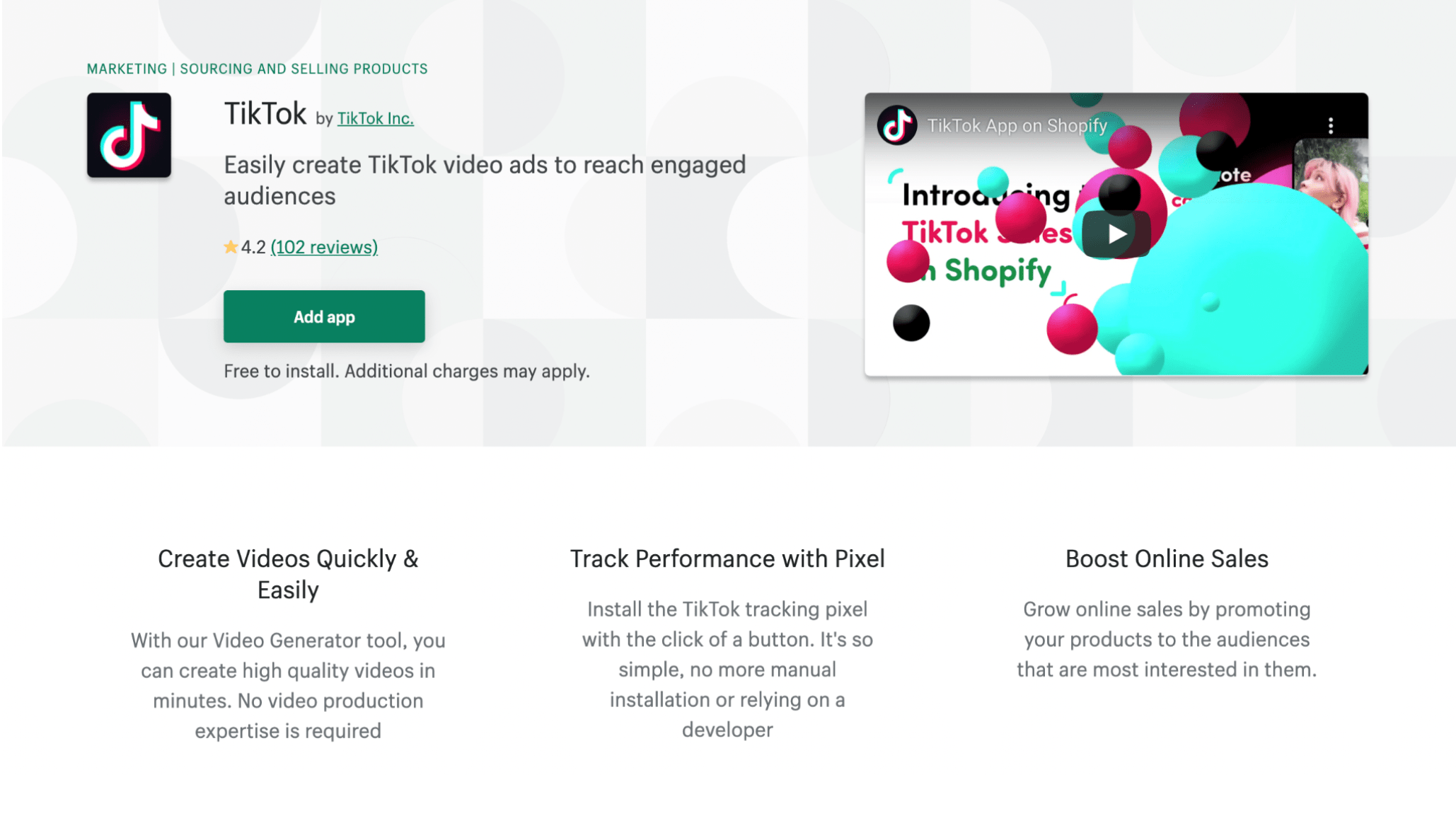
It’s very similar to the shopping experience that you see on the Instagram app.
Now creators can tag their products in organic videos with direct links back to a storefront. This removes a ton of friction that probably was causing a loss of sales and revenue for creators—especially because 67% of users say that TikTok helps them find new brands, and 57% say they bought something they saw on TikTok.
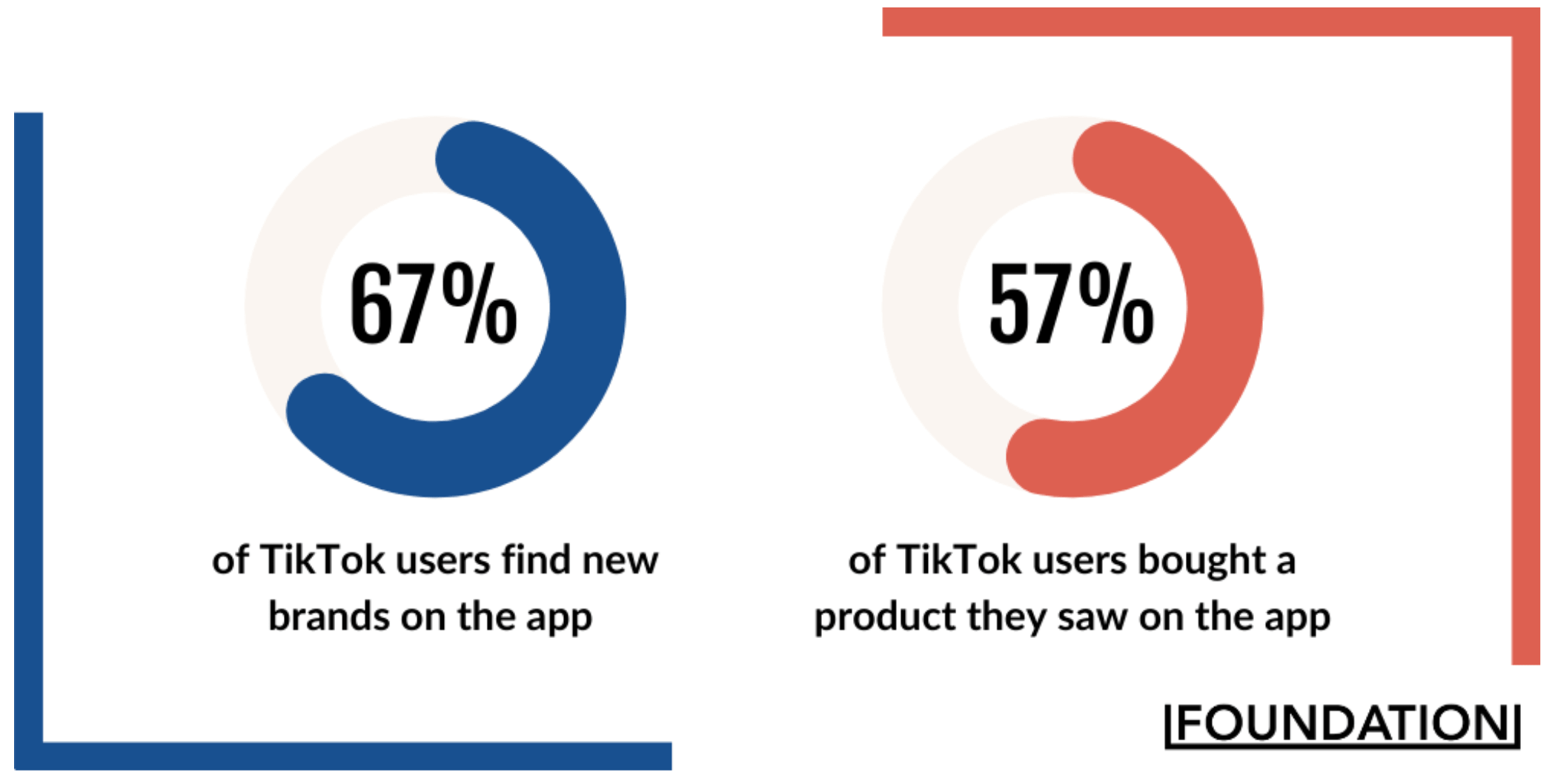
The organic and viral nature of TikTok makes this a huge win for brands or smaller creators trying to reach new people. Instead of relying on users to search for things like “TikTok couch” when they see something go viral on the app, the business can just add a link to the product directly in the video.
Companies have already been built from the ground up on TikTok, and Shopify can help them take it to the next level.
Shopify already has a super strong presence on TikTok. I can see this as a way to get more independent creators to join TikTok, or to push the 65+ million US digital content creators on the app to open up a storefront on Shopify.

Plus, this partnership allows Shopify to reach people thinking about starting a business, just as it did with the Business Name Generator.
This might seem like it’s only useful to people with physical products like clothes, makeup, or shoes. But many other types of brands can build out storefronts to sell digital products on TikTok. If you already have an engaged following, you should be able to sell books, digital content, and more to your followers with this new feature.
So don’t sleep on it!
Key Takeaways
- TikTok and Shopify are expanding their partnership to help creators sell products directly on the app.
- Vertical integration will help both Shopify and TikTok users sell more products.
- B2B brands can use this to sell downloadable content, merch (like custom t-shirts and branded stickers), and more on TikTok.
Zendesk Adds Cleverly.ai To Their Toolbox
It has been a VERY chaotic time in the world of customer service over the past few years.
Customer service reps handled 30% more tickets and requests over the last year. And even as things get back to normal, Zendesk expects its request volume to remain 20% higher than before the pandemic.
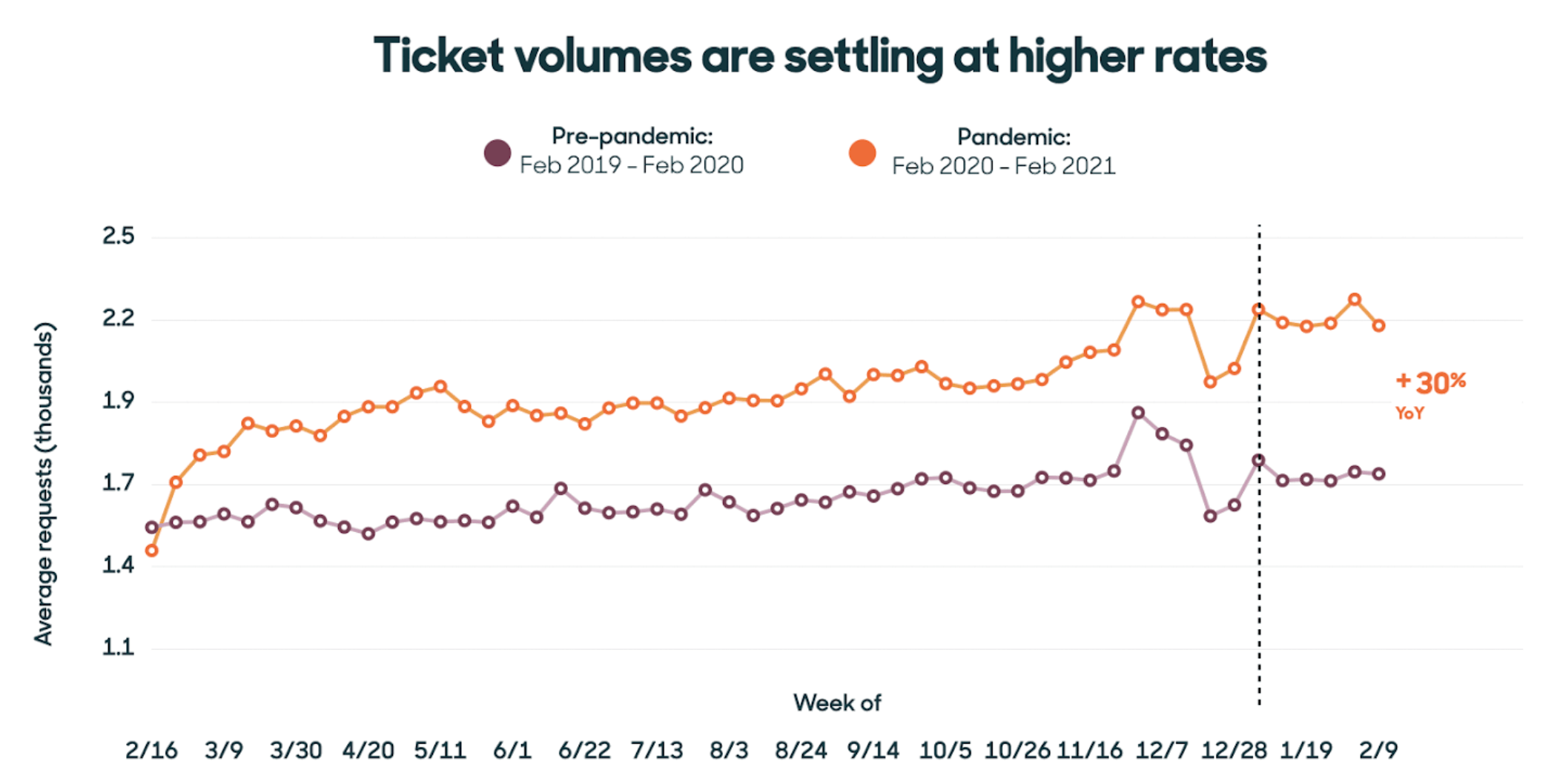
As production and shipping times keep slipping leading up to the holiday season, things are probably going to get even worse.
This is why so many brands are starting to invest in chatbots, automation, and AI tools to help their human reps get their job done.
Zendesk, in its quest to be the all-in-one platform for your brand’s customer service needs, expanded its toolbox with the acquisition of Cleverly last week. As of now, the terms of the acquisition are not public knowledge.
Cleverly helps huge brands like Vodafone, Dashlane, and more with their customer support needs by automating, sorting, and handling requests with AI.
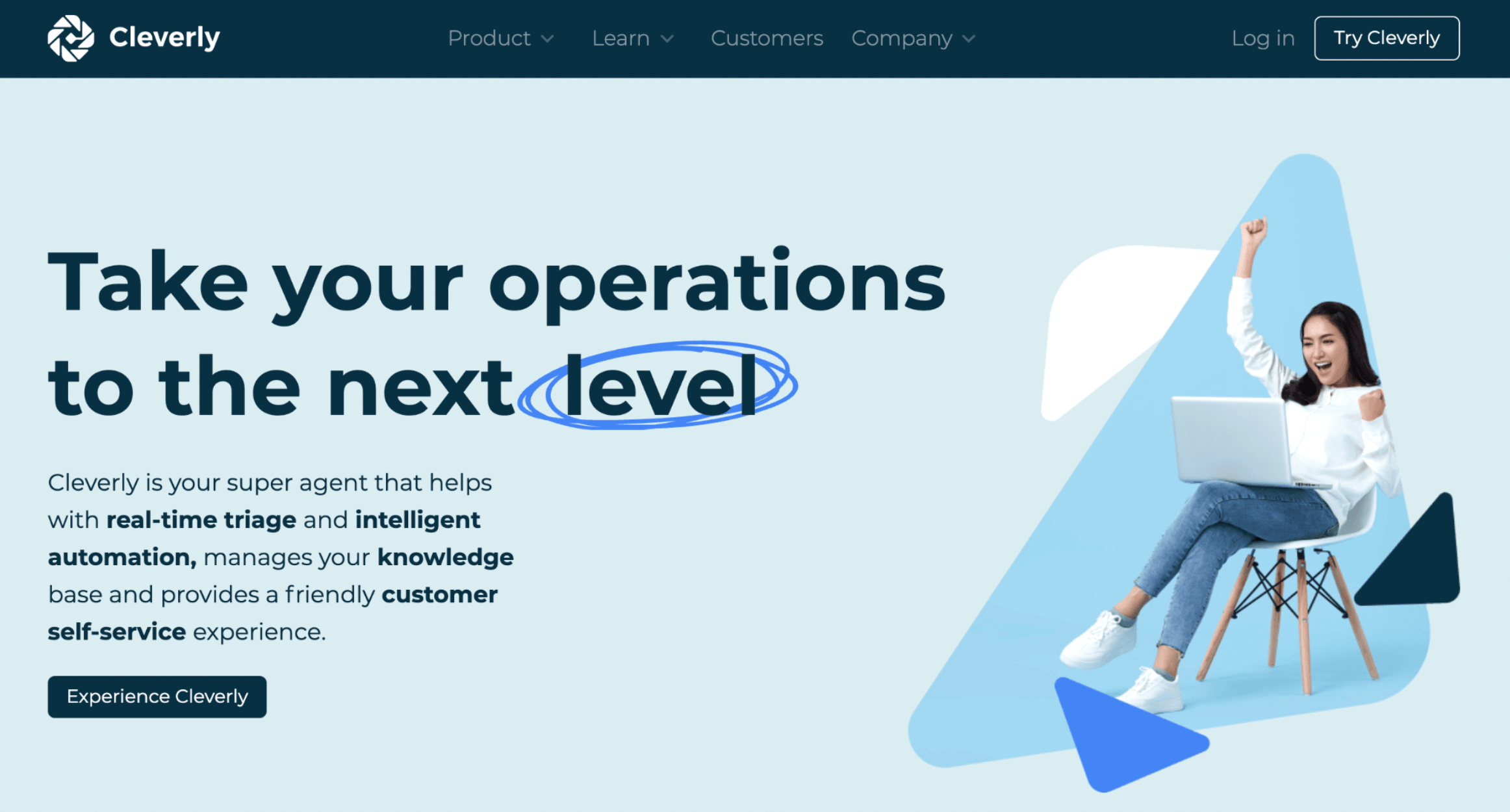
With this acquisition, Zendesk can add a ton of new smart features to their stack, including automatic tagging for new requests, smart knowledge bases, automation tools, and more.
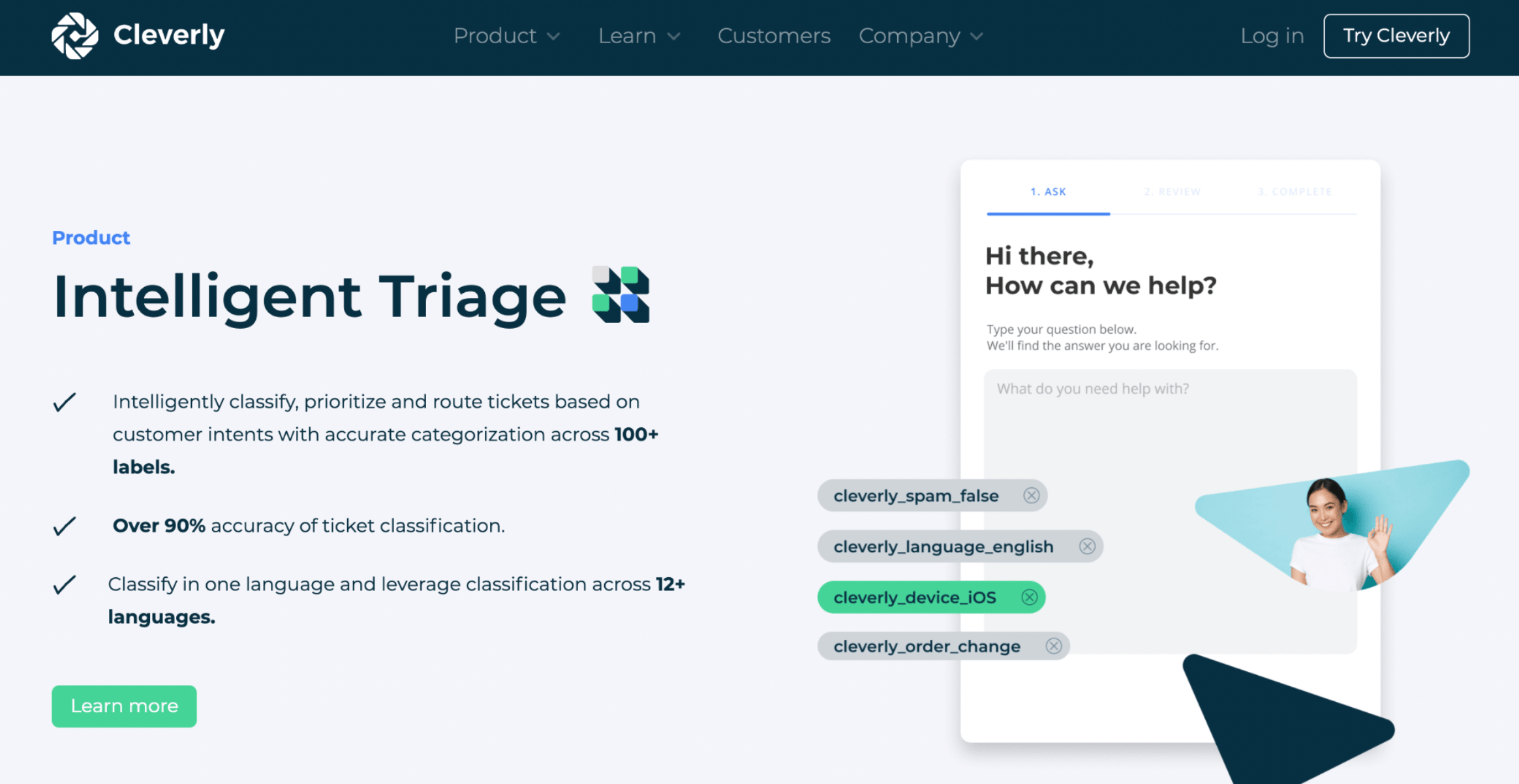
Cleverly will likely help beef out Zendesk’s automation offering and help it compete in the marketplace—and keep it from being bought up by a rival customer support brand.
Cleverly was already integrated with ZenDesk, so it should be an easy transition that will bring a lot of smart people into the organization.
Key Takeaways
- Zendesk acquires Cleverly to beef out its AI and automation stack.
- Customer support requests are up 20% this year and will likely increase.
- Companies will acquire smaller companies to keep them from rival brands.
Would You Work In VR?
That is the ultimate question, and if Facebook has any say, the answer might be: yes!
Facebook launched Horizon Workrooms last week, and people seem to be not overly hyped about it.
Horizon Workrooms is the latest product from Facebook to launch as they try to build out their “metaverse.” This metaverse is a place where digital and physical experiences come together on a daily basis.
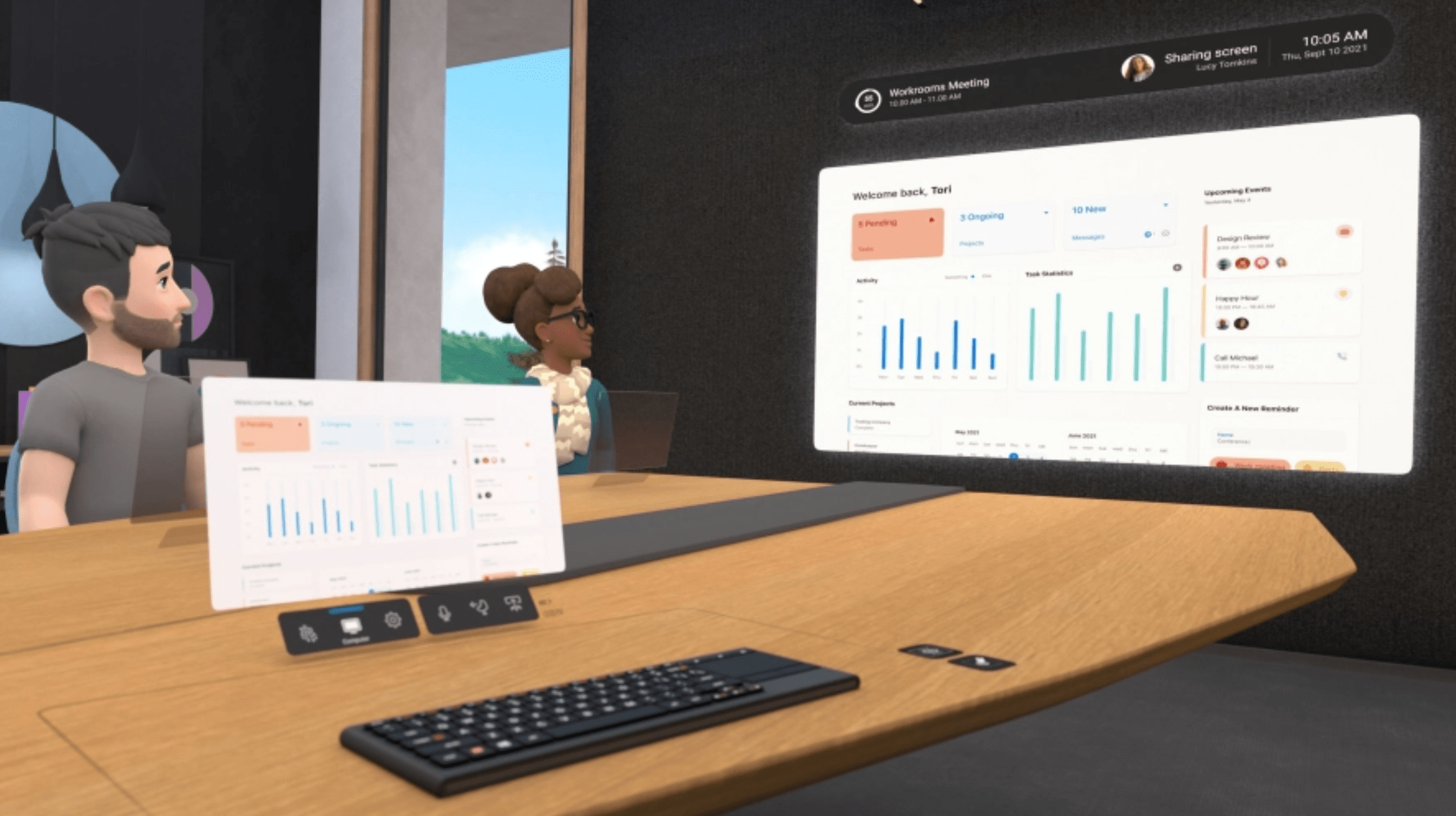
In Horizon Workrooms, you use the Oculus headsets and controllers to control your digital self in a virtual meeting room. Sounds a little crazy, right?
You can see your colleagues in the virtual meeting room, as well as a digital whiteboard, presentations screens, and more.
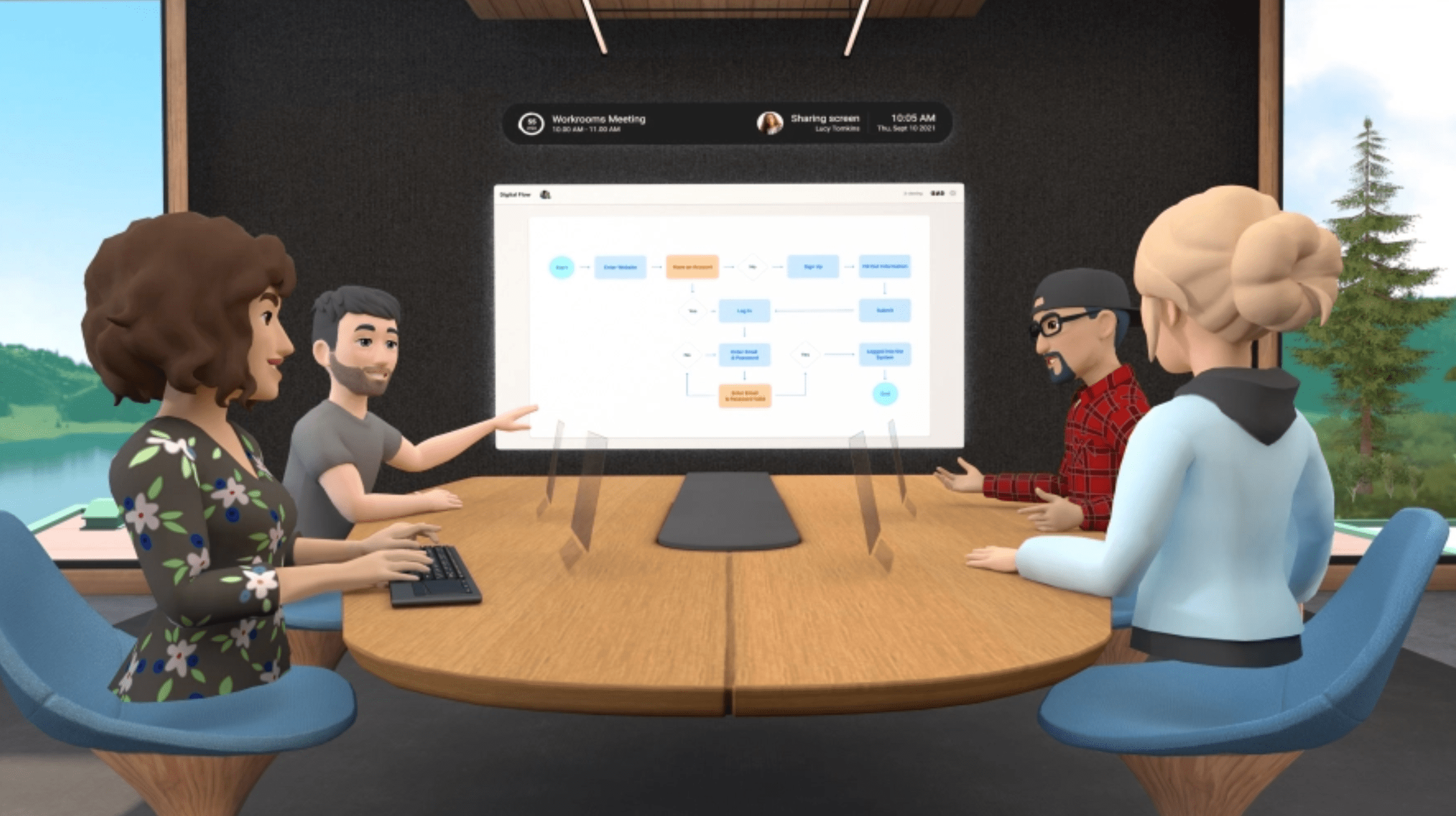
They claim that this will make real-time collaboration and communication much easier, no matter where you are in the world. I’m a little skeptical about that, but it could work.
Plus, Horizon Workrooms can turn your compatible keyboards, mouses, and even your desk into digital objects that you can interact with. So instead of being a floating head in virtual space, it becomes more of a mixed reality experience for everyone involved.
And finally, spatial audio makes it seem like you are really in the room instead of talking to a screen.
Not everyone needs an Oculus headset to use Workrooms, which was a very smart move by Facebook. This means companies can use Workrooms even if they are collaborating with a freelancer or someone outside of the company.
Like I said above, I was pretty skeptical about the long-term value of the Horizon Workrooms, but I’m starting to come around to it.
Let’s be honest; remote work is not going anywhere. Over 85% of managers think remote work is here to stay. But some of the biggest negatives with remote work are the loneliness and friction caused by poor communication.
People are also tired of Zoom screens after staring at them for the past year or more. They are causing mental health issues and even pushing people towards plastic surgery.
This mixed reality workspace that Facebook is building might help alleviate some of those negatives and make it feel like you are talking to a real person.
Oculus Quest 2 is only around $300, which isn’t that much more expensive than a quality monitor. So it’s not out of the reach for businesses to think about getting them for all their remote employees.
However, I believe the biggest market for these is not actually in meeting rooms, but in the classroom. There is a HUGE market for Facebook to sell their Oculus headsets to schools and universities, especially as more universities return to remote learning or expand their online offerings.
This reminds me of when classrooms first got iPads for every student. It seemed silly at first, but now all of these young adults know how to use an iPad.
Facebook sees the potential of using that same approach to get more people interested in VR and their metaverse.
But would you want to work and learn in VR?
My feelings are still a bit mixed.
Key Takeaways
- Facebook launches Horizon Workrooms for the Oculus platform.
- The product allows you to meet with your colleagues in a virtual environment.
- Potential for initial product growth in classrooms before moving to the general public.
OTHER NEWS OF THE WEEK:
🤖 Trello expands free plans & offers more automation for all plans.
📈 The majority of the largest US companies report revenue growth in 2021.
♻️ IKEA launches a furniture buyback program to combat waste.
BRAIN FOOD OF THE WEEK:
Recently VentureBeat published their Digital Customer Experience Report for 2021. In this report, they outlined how the improving digital experience for customers is more important than ever.
They talked to over 400 executives in key industries and found that a majority of them are struggling with a change in customer journeys brought on by the pandemic. With more people shopping online and experiencing companies in a digital space, understanding how they buy is very important in 2021 and beyond.
Most of these executives agreed that improving this digital experience going forward was key to their long-term success with many also saying that they plan on investing in more data and analytics platforms this year to better track their new customer patterns.
They outline a lot more interesting data in the full report, so be sure to check it out!
TWITTER THREAD OF THE WEEK:
ShipBob’s Social Proof Formula by Ryan McCready
WHAT WE’RE WIRED INTO THIS WEEK 🎧:
HIGH HORSE by Nelly, BRELAND & Blanco Brown
Cali B is on vacation this week, so Ryan is filling in for her!
Stay up to date with all of our latest findings by subscribing to our newsletter today. Signing up also gives you early access to Ross’ Tuesday essay full of exclusive industry insights.
Quick, do it now before the next drop!








